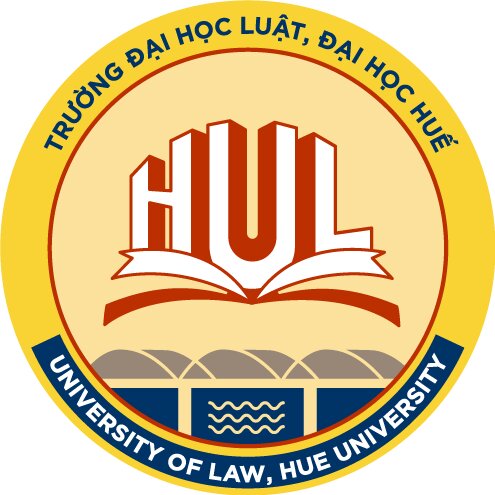Best Guardianship Lawyers in Vietnam
Share your needs with us, get contacted by law firms.
Free. Takes 2 min.
Or refine your search by selecting a city:
List of the best lawyers in Vietnam

About Guardianship Law in Vietnam
Guardianship in Vietnam is governed by Civil Law and other relevant legal documents. It involves the care and management of an individual, typically a minor or someone who cannot manage their own affairs due to incapacity or disability. The guardian acts in the best interest of the ward, ensuring their safety, wellbeing, and proper administration of their affairs. Guardianship can be granted by family consent, legal appointments, or through court orders based on the needs and circumstances.
Why You May Need a Lawyer
Legal assistance in guardianship may be necessary due to complexities in interpreting laws, handling disputes, or ensuring compliance with legal requirements. Common situations where a lawyer might be required include:
- Disputes over the appointment of a guardian.
- Challenges in understanding guardianship responsibilities and legal obligations.
- Issues related to the administration of financial affairs for the ward.
- Resolution of conflicts among family members or interested parties.
- Ensuring that all legal documentation is properly prepared and filed.
Local Laws Overview
Key aspects of guardianship laws in Vietnam include:
- The Civil Code of Vietnam provides the legal foundation for guardianship procedures, laying out the rights and duties of a guardian.
- Guardianship is applicable for minors, individuals deemed incapacitated, or those lacking full civil act capacity.
- Guardianship arrangements must be in the best interest of the ward and are monitored to prevent misuse or abuse.
- The People’s Court may intervene in cases where disputes arise or if a guardianship arrangement needs to be legally formalized.
Frequently Asked Questions
What is the role of a guardian in Vietnam?
A guardian is responsible for the personal and financial wellbeing of the ward, ensuring they are cared for, making legal decisions on their behalf, and managing any financial matters.
Who can become a guardian in Vietnam?
Typically, close family members or legal guardians can assume this role, but they must be approved by the court or agreed upon by relevant parties to ensure the ward's best interest.
Is there a difference between legal guardianship and custody in Vietnam?
Yes. Guardianship often involves broader responsibilities including financial and legal decisions, while custody focuses more on the physical care and supervision of a minor.
How is a guardian selected?
Guardians can be selected based on family arrangements, appointed by parents in a will, or ordered by a court. The individual must meet specific criteria to be deemed suitable.
Can a guardianship arrangement be contested?
Yes, guardianship can be contested if there is a belief that the current guardian is not acting in the ward's best interests or if there are concerns regarding their eligibility or conduct.
What happens if a guardian fails in their duties?
If a guardian is deemed negligent or abusive, legal actions can be taken to remove them from their role and appoint a new guardian for the ward.
Are there any costs associated with establishing guardianship?
There may be legal fees, court costs, and other expenses related to formalizing guardianship arrangements. A lawyer can provide guidance on potential costs.
Can guardianship be temporary or permanent?
Guardianship can be either temporary, covering short-term needs, or permanent, lasting until the minor reaches adulthood or the incapacitated person regains capacity.
Is it possible to terminate guardianship?
Yes, guardianship can be terminated by the court if it is no longer needed or if the ward can independently manage their own affairs.
How can I change a guardian?
Requests to change a guardian usually require a formal application to the court with valid reasons and suggested alternatives for the court's consideration.
Additional Resources
For further assistance and information, the following resources can be highly valuable:
- The Ministry of Justice Vietnam for official guidelines and regulations.
- Child Welfare Agencies for support involving minors.
- Local legal aid centers offer free or low-cost legal advice.
- The People’s Court for inquiries related to legal proceedings in guardianship.
Next Steps
If you believe legal assistance is required for guardianship matters, consider the following steps:
- Consult with a qualified lawyer who specializes in family or civil law to understand your rights and responsibilities.
- Gather necessary documents and evidence related to the guardianship arrangement.
- Consider mediation or family counseling as an alternative to legal intervention if applicable.
- Contact local legal aid organizations if cost is a barrier.
- Maintain open communication with all parties involved to ensure transparency and cooperation.
Lawzana helps you find the best lawyers and law firms in Vietnam through a curated and pre-screened list of qualified legal professionals. Our platform offers rankings and detailed profiles of attorneys and law firms, allowing you to compare based on practice areas, including Guardianship, experience, and client feedback.
Each profile includes a description of the firm's areas of practice, client reviews, team members and partners, year of establishment, spoken languages, office locations, contact information, social media presence, and any published articles or resources. Most firms on our platform speak English and are experienced in both local and international legal matters.
Get a quote from top-rated law firms in Vietnam — quickly, securely, and without unnecessary hassle.
Disclaimer:
The information provided on this page is for general informational purposes only and does not constitute legal advice. While we strive to ensure the accuracy and relevance of the content, legal information may change over time, and interpretations of the law can vary. You should always consult with a qualified legal professional for advice specific to your situation.
We disclaim all liability for actions taken or not taken based on the content of this page. If you believe any information is incorrect or outdated, please contact us, and we will review and update it where appropriate.
Browse guardianship law firms by city in Vietnam
Refine your search by selecting a city.














